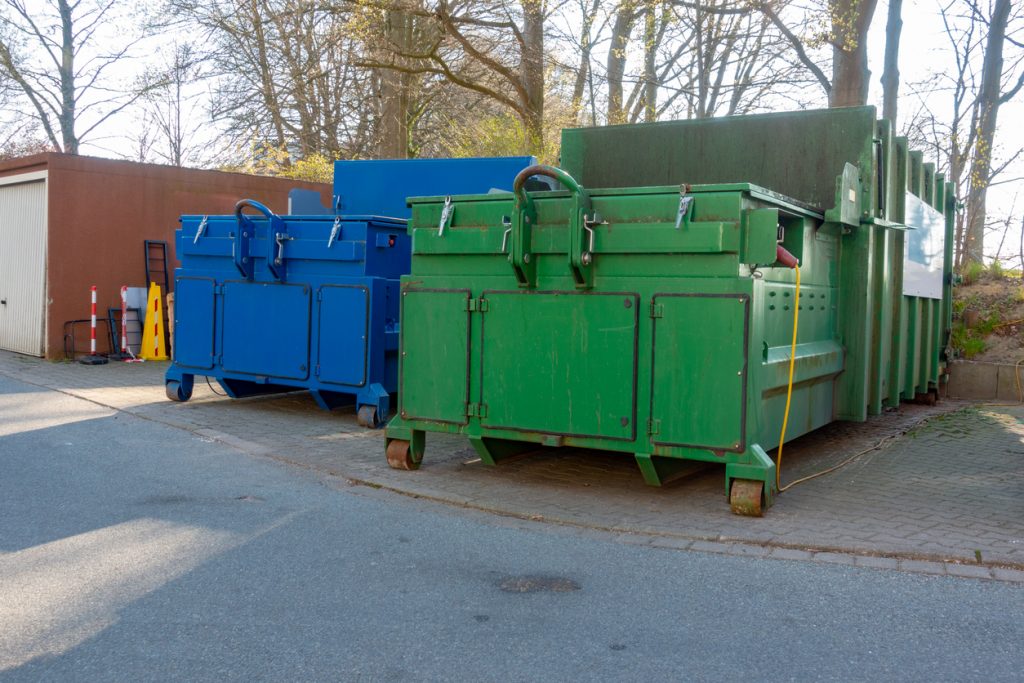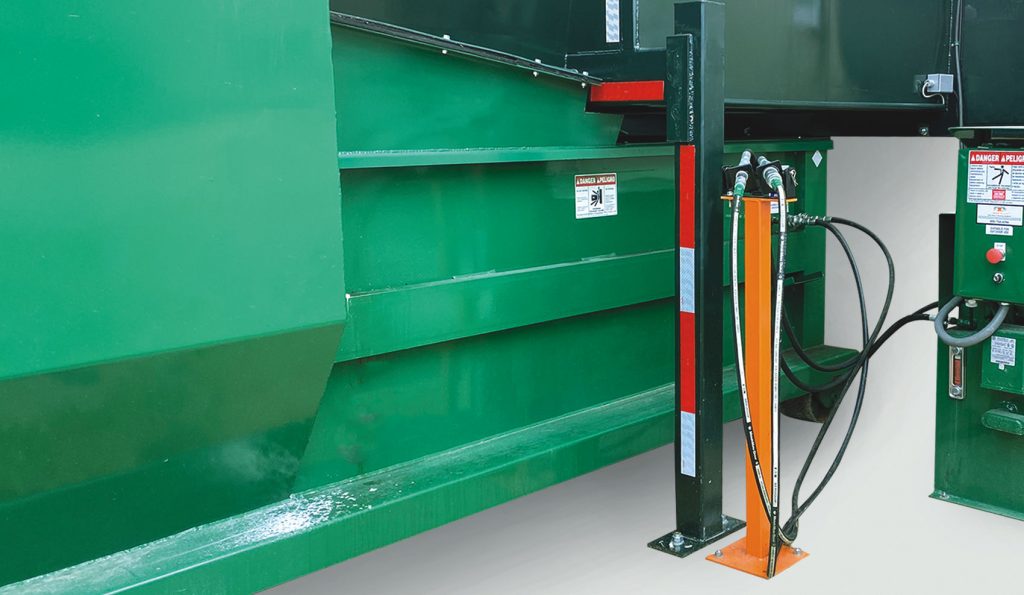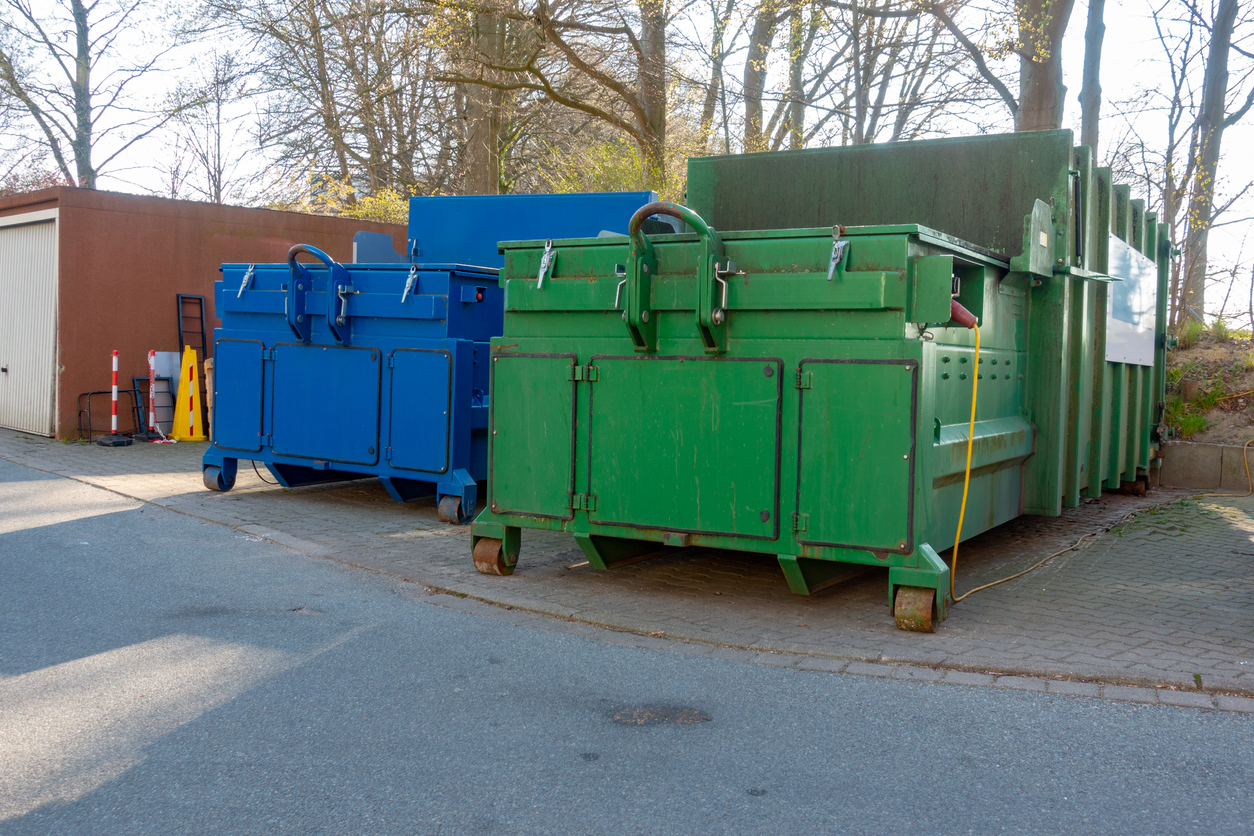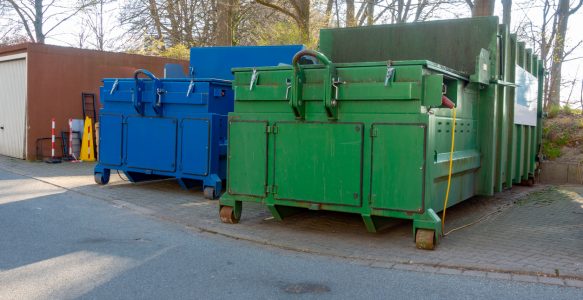
All trash compactors are not created equal. It is important to weigh key considerations when selecting the right type of compactor to meet your company’s waste management needs. Evaluating certain details will help you to make a wise purchase that will not create additional challenges or expenses with costly repairs.
Sourcing your commercial or industrial waste compactor is a big investment. Having the right type of trash compactor on-site optimizes your waste storage and waste handling process and provides many benefits for your business such as a cleaner environment, a reduced risk of fire, pest infestation and odor protection.
So how do you make sure you get the right type of compactor to meet your needs and provide all these benefits? Evaluate these top five considerations for choosing the right trash compactor to meet waste management needs:
- Type of compactor – there are basically two types of trash compactors, stationary and self-contained.
- A stationary compactor is anchored to the ground and compacts dry waste into a removable container that can be removed and dumped.
- A self-contained trash compactor is one mobile unit that utilizes hydraulics to compact trash and features leakproof protection for wet waste. This type of compactor is picked up and hauled to the landfill by waste haulers to be dumped and returned to the business.
- Type of waste generated – the type of waste that a business generates is an important consideration to choose the right type of compactor. For companies that discard typically dry waste such as paper, recyclables and cardboard, a stationary unit may be the best choice. For other types of businesses like restaurants, hotels, apartments, and hospitals that discard all types of waste including liquid, self-contained compactors are a better choice because they efficiently and sanitary early handle wet waste.
- Space available – the space available to house your compactor is another consideration when choosing the right trash compactor for your business. Both stationary and self-contained compactors require a significant amount of space. For companies with limited space available, a vertical compactor might be a choice.
- Compactor size and volume – the volume of waste generated as a business is a key driver for the type of compactor chosen. Compactor volume is measured in cubic yards. Companies will want to have an idea of the amount of waste generated and compared to the cubic cards available in the compactor size as well as frequency of pickups and disposal. Companies need to weight the cost of pickups vs. the cost for a larger size based on the volume of waste generated.
- Disposal method – how workers will get trash to the compactor is another consideration. For a stationary type of compactor, workers may carry or use a cart to get trash to the compactor. A self-contained trash compactor may either have a door on the side to put trash in or could be outfitted with a chute.
Self-Contained Commercial Trash Compactors
Self-contained trash compactors serve waste removal needs for a wide range of commercial businesses and industries, managing large volumes of liquid waste. Self-contained compactors provide efficient and sanitary waste removal for many types of establishments such as grocery stores, shopping malls, manufacturers, apartment complexes and more. A waste hauler picks up the entire compactor when the container is full and hauls it away to be emptied.
C-BASS Protects Self-Contained Compactors and Reduces Risk

Self-contained compactors are efficient and sanitary, although because waste haulers load the entire unit to haul off for disposal, errors can occur. Drivers must disconnect the hydraulic hoses prior to driving off. It has been shown as documented in this case study, that waste haulers with the fleet of compactors experience this problem approximately 13 times for every 100 compactors serviced. This one error can cause serious damage with leaking hydraulic fluid, damage to the equipment, hydraulic and electrical power circuits.
When you decide that a self-contained trash compactor would best service the needs of your business, consider protecting your investment with the Stucchi C-BASS solution.
Stucchi’s Compactor Break Away Safety System, C-BASS, protects self-contained compactors against damage and protects your overall business operations. Watch this quick video to see the many benefits of a self-contained compactor with a break away safety system. Contact Stucchi with any questions and to protect your commercial compactor and waste management process.

